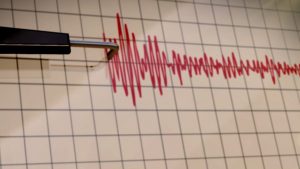Hurricane Matthew has killed more than 800 people and left tens of thousands homeless in its rampage through Haiti before lashing Florida with rain and howling winds and rolled northward up the US Atlantic coast.
The number of fatalities in Haiti, the poorest country in the Americas, surged to at least 842 on Friday as information trickled in from remote areas previously cut off by the storm, according to a Reuters tally of death tolls given by officials.Matthew, the first major hurricane that could hit the United States head on in more than a decade, triggered mass evacuations along the coast from Florida through Georgia and into South Carolina and North Carolina.
Southern Florida escaped the brunt of the storm overnight, but US President Barack Obama and other officials urged people not to get complacent in the face of a storm that could be the most severe to strike northeast Florida in more than 100 years.
“I just want to emphasise to everybody that this is still a really dangerous hurricane, that the potential for storm surge, loss of life and severe property damage exists,” Obama told reporters after a briefing with emergency management officials. “People continue to need to follow the instructions of their local officials over the next 24, 48, 72 hours.”
Matthew had smashed through the tip of Haiti’s western peninsula on Tuesday with 145 mph (233 kph) winds and torrential rain. Some 61,500 people were in shelters, officials said, after the storm pushed the sea into fragile coastal villages, some of which were only now being contacted.
At least 175 people died in villages clustered among the hills and coast of Haiti’s fertile western tip. At least three towns reported dozens of fatalities, including the farming village of Chantal, where the mayor said 86 people perished, mostly when trees crushed houses. He said 20 others were missing.
“A tree fell on the house and flattened it, the entire house fell on us. I couldn’t get out,” said driver Jean-Pierre Jean-Donald, 27, who had been married for only a year.
“People came to lift the rubble, and then we saw my wife who had died in the same spot,” Jean-Donald said, his young daughter by his side, crying “Mommy.”
Mobile phone networks were down and roads were flooded by sea and river water in Haiti.
Florida power cuts
Matthew swiped Florida on Friday with winds of 120 miles per hour (195 kph).
The city of Jacksonville could face significant flooding, the state’s governor, Rick Scott, said. The storm had cut power to some 600,000 households in Florida, he told a news conference.
At 11:00am EDT (1500 GMT), Matthew’s eye, or centre, was brushing the northeast Florida coast, the US National Hurricane Center said. It was moving at around 12 mph (19 kph) on a path that would likely take it near or over the coast of northeast Florida and Georgia through Friday night and near or over the coast of South Carolina on Saturday.
No significant damage or injuries were reported in cities and towns in south Florida where the storm brought down trees and power lines, CNN and local media reported.
Craig Fugate, director of the Federal Emergency Management Agency, said he was concerned that relatively light damage in the south of Florida so far could give people farther up the coast a false sense of security.
“People should not be looking at the damages they’re seeing and saying this storm is not that bad,” Fugate told NBC. People should also be aware the hurricane carried more than just ferocious winds, he said.
“The real danger still is storm surge, particularly in northern Florida and southern Georgia. These are very vulnerable areas. They’ve never seen this kind of damage potential since the late 1800s,” Fugate said.
The US National Weather Service said the storm could be the most powerful to strike northeast Florida in 118 years. The last major hurricane, classified as a storm bearing sustained winds of more than 110 mph (177 kph), to make landfall on US shores was Hurricane Wilma in 2005.
Damage and potential casualties in the Bahamas were still unclear after Matthew passed near the capital, Nassau, on Thursday and then moved out over Grand Bahama Island.
The NHC’s hurricane warning extended up the Atlantic coast from central Florida through Georgia and into North Carolina. – Agencies



